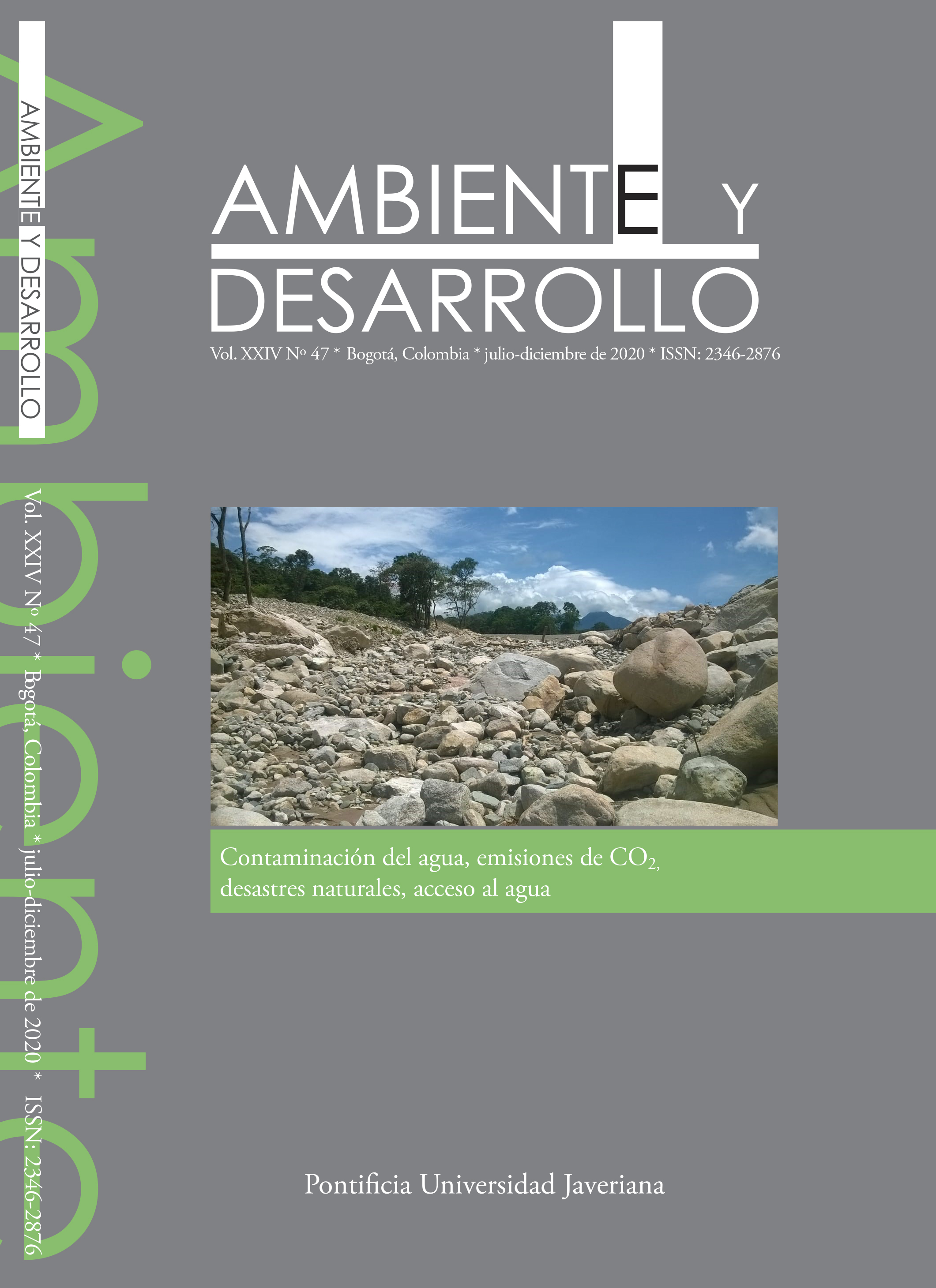Resumen
La actividad agrícola bananera en la región del Urabá- Antioquia, ocupa el primer lugar en el país en producción de fruta de banano y exportación, esta genera importantes ingresos para la sostenibilidad y progreso de la subregión, a su vez conlleva a problemáticas ambientales significativas; a través de esta investigación se analizó potenciales de afectación del rio Carepa, generadas por las actividades bananeras, como siembra, desarrollo del cultivo, cosecha y empaque desarrolladas; se tomaron como muestras 6.000 hectáreas cultivadas de banano que se encontraban en las riberas del rio; se caracterizaron los pesticidas más utilizados en las mencionadas con anterioridad, se comparó con investigaciones de años anteriores, en el proceso se midieron in situ parámetros como pH, temperatura, oxígeno disuelto, turbidez, conductividad eléctrica, posteriormente se conservaron y preservaron muestras para determinar por medio de la técnica cromatografía liquida acoplada a espectrometría de masas en tándem el Etilentiourea (etu) subproducto del Fungicida Mancozeb él más utilizado por esta actividades agrícola y así conocer más de cerca el riesgo ecotoxicológicos en la fuente hídrica objeto de estudio.
Aguirre-Buitrago, J. C., Narváez-González, S. C., Bernal-Vera, M. E.,y Castaño-Ramírez, E. (2014). Contaminación de operarios con Clorpirifos, por práctica de embolsado de banano (Musa sp.) en Urabá, Antioquia. Luna Azul, (38). http://www.scielo.org.co/pdf/luaz/n38/n38a12.pdf
Alfonso M., F. L., y Toro Suárez, I. (2010). Riesgo ambiental por el uso de agroquímicos. Inventum, 5(9), 32-41. https://doi.org/10.26620/uniminuto.inventum.5.9.2010.32-41
Augura. (2014). Diagnóstico del consumo de agua y eficiencia de remoción en diversos sistemas de tratamiento de agua para el lavado del banano. Augura.
Boopsthy, R. (2000). Factors limiting bioremediation technologies. Bioresource Technology, 74, 63-67.
Corpouraba. (2008). Agroquímmicos . Aparadó.
Corpouraba. (2012). Plan de gestión ambiental regional, versión 02, 2012 -2024. Apartadó, Uraba, Antioquia: Corporación para el Desarrollo Sostenible de Urabá-Corpourabá.
Del Puerto Rodríguez, A. M., Suárez, T. S., & Palacio Estrada, D. E. (2014). Efectos de los plaguicidas sobre el ambiente y la salud. Instituto Nacional de Higiene, Epidemiología y Microbiología, 372-387. http://www.redalyc.org/pdf/2232/223240764010.pdf
DNP-Dirección Nacional de Planeación. (2011). Sostenibilidad ambiental y prevención del riesgo. https://colaboracion.dnp.gov.co/CDT/PND/7C.%20Cap%C3%ADtulo%20VI.pdf
Engst, R., y Schnaak, W. (1970). Studies on the metabolism of the ethylenebisdiothiocarbamate fungicides maneb and zineb. Z. Lebensm. Unters. Forsch., 143, 81-85.
FAO. (2002). Agricultura mundial hacia los años 2015/2030. Perspectivas para el medio ambiente. http://www.fao.org: http://www.fao.org/3/y3557s/y3557s11.htm
Marín, D.; Romero, R. (1992). El combate de la Sigatoka negra. Corporación Bananera Nacional, S.A., Departamento de Investigaciones, Boletín No. 4.
República de Colombia (1984). Decreto 1594 de 1984. Ministerio de Agricultura
Pazmiño, O. (1989). Estudio de determianción de residuos de Maneb en tomate. Revista sanitaria vegetal, 4.
Perdomo, G., y Gómez, M. (2000). Estatuto para el área jurisdicción de la corporación autónoma regional del Tolima 3° ed. Ibagué: Cortolima
República de Colombia (2007, 9 de mayo). Decreto 1575 DE 2007, por el cual se establece el Sistema para la Protección y Control de la Calidad del Agua para Consumo Humano. Presidencia de la República de Colombia.
Rossi, D. (2013). Los Agroquímicos usados en Las Plantaciones Bananeras y sus Efectos en el Agua, la Gente, y el Ambiente en la Comunidad de Changuinola, Bocas del Toro, Panamá. Independent Study Project (ISP) Collection. 1595. https://digitalcollections.sit.edu/cgi/viewcontent.cgi?article=2638&context=isp_collection

Esta obra está bajo una licencia internacional Creative Commons Atribución 4.0.
Derechos de autor 2022 Leonardo Cardona Patiño


